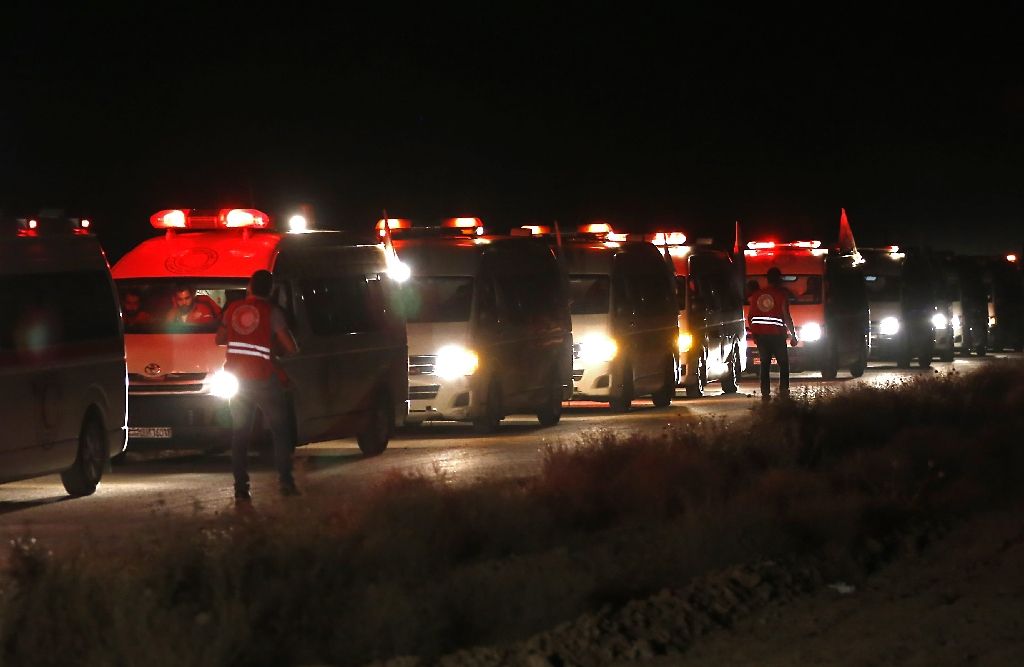Dubai – Recent developments have seen opposing extremist groups, both Sunni and Shi’ite, set aside their differences in order to achieve their interests. Survival instincts and Machiavellian schemes run deeper than ideological victories that only the people kill themselves for.
We saw this when al-Qaeda members involved in the September 11, 2001 attacks sought refuge in Iran where they were eventually trained at the hands of “Hezbollah” and its late commander Imad Moghnieh, as proven in a report on the attacks.
It is strange that ISIS, with its Zarqawi creed, would come together with “Hezbollah,” its historic enemy, most prominent arm of Iran’s Wilayat al-Faqih and most important backer of the survival of the Syrian regime. Through the latter’s sponsorship, we witnessed in late August an agreement – or deal – between “Hezbollah” and ISIS.
Such a deal is not strange when one notices the history that binds al-Qaeda and Iran together. Zarqawi himself had fled Afghanistan’s Herat to Iran, where he resided for two years. Ousama bin Laden had in his last years and for various reasons called against targeting Iran. Among these reasons is its role as a safe haven for dozens of Qaeda fugitives as proven in documents obtained from his Abbottabad residence.
The possibility of ISIS and Iranian groups coming together is always possible when interests demand it. This was seen in “Hezbollah’s” agreement with ISIS through Syrian regime chief Bashar Assad’s blessing. ISIS is in a position of weakness after its defeats in Syria and Iraq, but Assad chose to leave the Tabaqa military base open for the taking by the terror group as he did various cities and weapons caches. He did this with total disregard of the danger ISIS poses to neighboring countries.
After liberating Iraq from Saddam Hussein’s regime in 2003, the Syrian borders became a main passage for extremists from all over the world heading to Iraq, prompting many Shi’ite cities to call for the overthrow of terrorism and the Syrian regime that supports it.
Dangerous deal and angry reactions
Several questions were raised and uncertainties were voiced after the August 26 “Hezbollah”-ISIS agreement that saw two opposing fundamentalist groups come together. The deal caught the attention of the allies of either group, especially “Hezbollah”, which is the more powerful side of the equation.
“Hezbollah” and its media announced on August 27 that an ISIS convoy will depart the Lebanese-Syrian border to Syria’s Albou Kamal city in Deir al-Zour. Some sides questioned the silence of the Najaf authority over the deal and its failure to condemn it even though it would see ISIS members return close to the Iraqi border, which would undermine the recent victories achieved by the US-led international coalition and Iraqi army in Nineveh, Talafar and other areas. The Najaf authority appears to be aware of the Iranian goal, which serves the interests of Assad, and it appears to have disregarded Iraqi interest.
Iraqi officials have however voiced their condemnation of the agreement. Prime Minister Haidar al-Abadi and various political blocs rejected the Syrian regime-sponsored “Hezbollah”-ISIS deal. Parliament Speaker Salim al-Jabbouri expressed his rejection of any agreement that would restore ISIS to Iraq or bring it close to its borders. He added that Iraq will not pay the price of deals that harm its stability and security, calling on the government to take all necessary measures to counter the repercussions of this agreement.
The return of ISIS to Deir al-Zour will allow the terrorist organization to regroup in a strategic area that would allow it to carry out attacks against Iraq from Syrian territory, especially since it is only about a 100 kilometers away from Iraq.
Contradictory stances
“Hezbollah” leader Hassan Nasrallah’s approval of the deal with ISIS stands in stark contrast to his rejection of the Iraqi forces’ operation to liberate Mosul. He feared at the time that ISIS members would flee Mosul and seek refuge in Syria’s eastern regions. At the time of the announcement of the operation in October 2016, Nasrallah addressed the Iraqi people, urging them to reject what he called the “American deal” to expel ISIS into Syria, which would harm Iraqis and Syrians alike.
He declared that the “real Iraqi victory against ISIS lies in arresting its leaders and fighters, jailing them, and later putting on a fair trial. This victory does not lie in opening a route for them in Syria, because their presence there will pose a major danger to Iraq above anything else.”
It appears that these warning evaporated when it came to the “Hezbollah”-ISIS deal because it ensured that its interests and those of Assad were achieved.
In justifying his warning, Nasrallah claimed that ISIS’ return close to the Iraqi border would lead Iraqi forces into Syria to expel them He also claimed that in returning to Syria, ISIS will pave the way to its return to Iraq where the Anbar, Salaheddine, Nineveh and Mosul areas were under government control. So how did ISIS originally enter them? They entered from Syria’s Raqqa and Deir al-Zour, alleged Nasrallah.
This is historically incorrect because ISIS had initially emerged in Iraq after a demonstration was suppressed by force by Nouri al-Maliki’s forces. The group then seized the weapons left behind by Maliki’s forces and headed to Syria. It appears however that Nasrallah has forgotten or claims to have forgotten his own statements. He instead fell back on old allegations of combating the “Great devil” or “American deception” to justify his actions.
The “Hezbollah”-ISIS agreement reveals that the interest of the Syrian regime in the Iranian agenda is more important that the Iraqi regime and people, who have made great sacrifices in recent months in their war against ISIS. The deal also reveals that Iran, a nation that harbors dozens of violent extremist groups and many “Hezbollahs” that defend its identity and role, will not hesitate in striking deals with ISIS and al-Qaeda and their ilk whenever its interest and need demand it.
